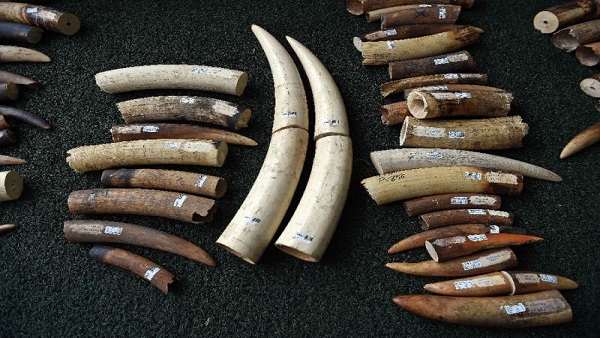Kenyan officials seized nearly two tonnes of smuggled ivory after recalling a shipment en route to Cambodia following intelligence that it contained illegal cargo, a tax official said.
The 1.97 tonnes of ivory, valued at 197 million shillings ($2 million), were hidden in hollow wooden planks and declared as ceramics, David Yego, Kenya Revenue Authority’s commissioner for investigations, said on Wednesday.
Authorities in Singapore returned the shipment to Mombasa after Kenya raised the alarm.
Yego expressed concerns that the smugglers had been able to bypass new security measures designed to stop narcotics and ivory smuggling at the port.
“The manner in which the tusks were concealed causes a concern to us, as to the manner in which ivory traffickers are adapting new tactics to avoid detection at ports, but we are up to the task,” Yego told journalists in Mombasa.
Many of the 334 pieces of ivory had red ink marks that Yego said might indicate they were police evidence exhibits. Kenya made several high-profile ivory seizures in 2013 and 2014, and the ivory is usually securely stored to be used as evidence.
Elephant poaching across Africa peaked in 2011 but remains “unacceptably high”, according to the Monitoring the Illegal Killing of Elephants Programme (MIKE), which is supported by the Convention on International Trade in Endangers Species (CITES).
Well-armed criminal gangs kill elephants for tusks and rhinos for their horns, and the parts are often shipped to Asia for use in ornaments and medicines.
In 2013, the government imposed stiffer penalties – longer jail terms and bigger fines – on anyone convicted of poaching or trafficking in wildlife trophies, saying poaching was harming tourism, a major foreign exchange earner.
In February, the government replaced senior managers at the port to try to tackle drug and ivory smuggling.
Source: Reuters



